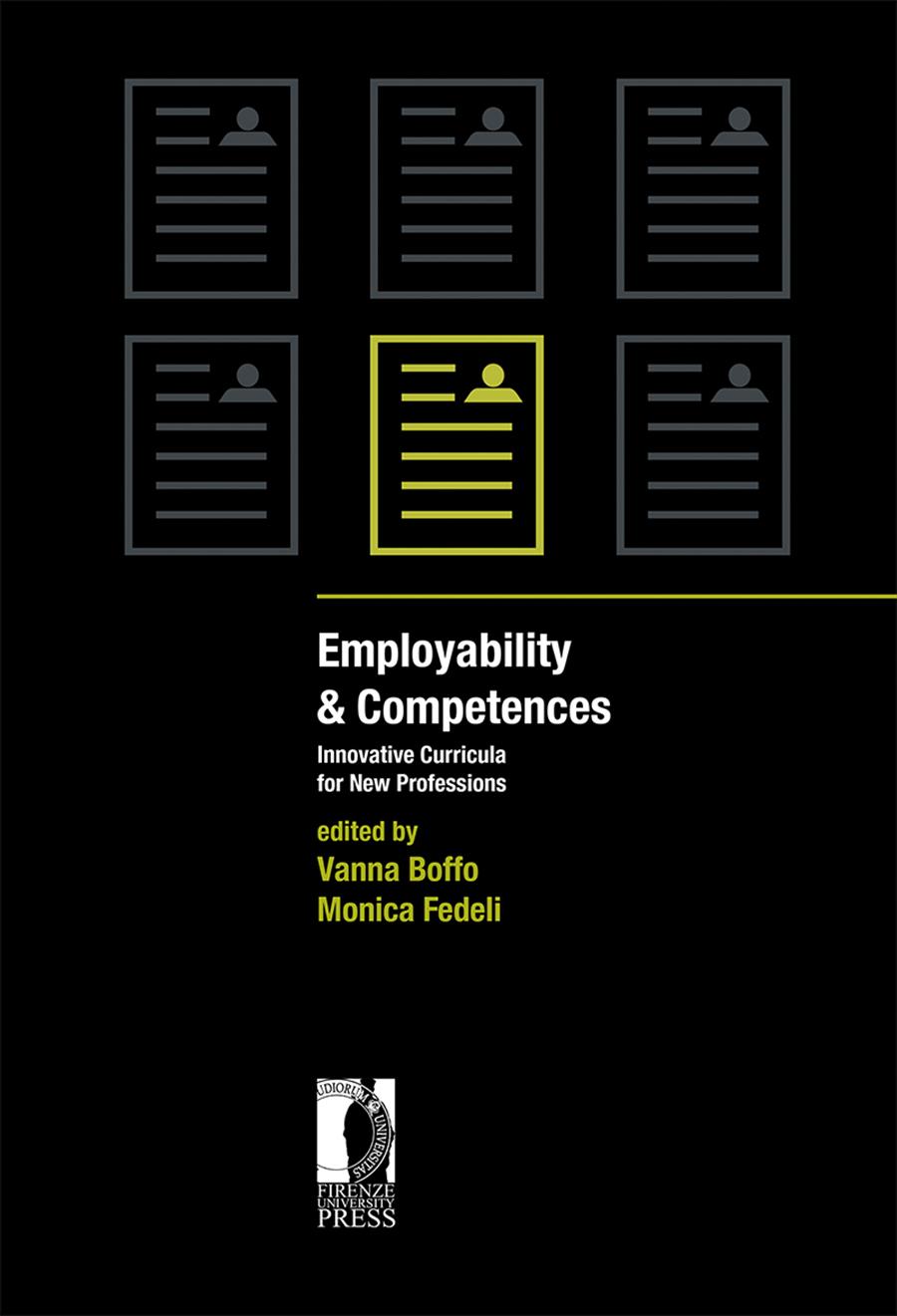- Employability & Competences
- Edited by Vanna Boffo, Monica Fedeli
Promoting 21st century skills in Higher Education through collaboration and activities
- Nadia Sansone
- Donatella Cesareni
- Ilaria Bortolotti
- © 2018 Author(s) |
- CC BY 4.0
- DOI: 10.36253/978-88-6453-672-9.24
The paper presents a model of university teaching where students are involved in concrete activities and collaborate while developing key competences for the academic and working future. 52 students of the Degree Course in Psychology at the Sapienza University of Rome participated to the activity. The method of data collection and analysis combines qualitative and quantitative approach. Results show a general perception of skills enhancement and a good appreciation of the course, especially in comparison with traditional learning modes
- Keywords:
- skills,
- collaborative learning,
- project-based learning,
- technologies,
Sapienza University of Rome, Italy - ORCID: 0000-0002-3413-7983
Sapienza University of Rome, Italy - ORCID: 0000-0002-8485-8498
Sapienza University of Rome, Italy - ORCID: 0000-0002-3271-5989
- Binkley M., Erstad O., Herman J., Raizen S., Ripley M., Miller-Ricci M. and Rumble M. 2012, Defining twenty-first century skills. Assessment and teaching of 21st century skills, Springer, Berlin, 17-66.
- Brown A.L. 1992, Design experiments: Theoretical and methodological challenges in creating complex interventions in classroom settings, «The Journal of The Learning Sciences», II (2), 141-178.
- Cole M. 1996, Cultural psychology. A once and future discipline, Harvard University Press, Harvard.
- Collins A. 1992, Toward a Design Science of Education, «New Directions in Educational Technology», 15-22.
- Design-Based Research Collective 2003, Design-based research: An emerging paradigm for educational inquiry, «Educational Researcher», XXXII (1), 5-8.
- Engeström Y. 1987, Learning by Expanding: An Activity-Theoretical Approach to Developmental Research, Orienta-Konsultit Oy, Helsinki.
- Hakkarainen K.P., Palonen T., Paavola S. and Lehtinen E. 2004, Communities of networked expertise: Professional and educational perspectives, Emerald, London.
- Hakkarainen K.P. and Paavola S. 2009, Toward a trialogical approach to learning, «Transformation of knowledge through classroom interaction», 65-80.
- Muukkonen H., Lakkala M., Toom A. and Ilomäki L. 2016, Assessment of competences in knowledge work and object-bound collaboration during higher education courses, Higher Education Transitions: Theory and Research. EARLI book series New Perspectives on Learning and Instruction.
- Paavola S., Engeström R. and Hakkarainen K. 2010, Trialogical approach as a new form of mediation, in Morsh A., Moen A. and Paavola S. (eds.) Collaborative knowledge creation: Practices, tools, and concepts, Sense Publishers, Rotterdam, 9-23.
- Paavola S. and Hakkarainen K. 2014, Trialogical approach for knowledge creation, «Knowledge creation in education», 53-73.
- Paavola S., Lakkala M., Muukkonen H., Kosonen K. and Karlgren K. 2011, The roles and uses of design principles for developing the trialogical approach on learning, «Research in Learning Technology», XIX (3), 233-246.
- Paavola S., Lipponen L. and Hakkarainen K. 2004, Models of innovative knowledge communities and three metaphors of learning, «Review of Educational Research», LXXIV (4), 557-576.
- Pozzi F., Persico D. and Dimitriadis Y. 2012, 15. Tecniche e strategie per strutturare la collaborazione in una KBC in rete, «Qwerty-Open and Interdisciplinary Journal of Technology, Culture and Education», VI (2), 179-200.
- Sansone N., Cesareni D. and Ligorio M.B. 2016, Il Trialogical Learning Approach per rinnovare la didattica, «TD Tecnologie Didattiche», XXIV (2), 82-91, DOI: 10.17471/2499-4324/892
- Schellens T. and Valcke M. 2006, Fostering knowledge construction in university students through asynchronous discussion groups, «Computers & Education», XLVI (4), 349-370.
- Sfard A. 1998, On Two Metaphors for Learning and the Dangers of Choosing Just One, «Educational Researcher», XXVII (2), 4-13.
- Vygotsky L.S. 1981, The genesis of higher mental functions, in Wertsch J.V. (ed.) The concept of activity in Soviet psychology, Sharpe, Armonk.
Chapter Information
Chapter Title
Promoting 21st century skills in Higher Education through collaboration and activities
Authors
Nadia Sansone, Donatella Cesareni, Ilaria Bortolotti
Language
English
DOI
10.36253/978-88-6453-672-9.24
Peer Reviewed
Publication Year
2018
Copyright Information
© 2018 Author(s)
Content License
Metadata License
Bibliographic Information
Book Title
Employability & Competences
Book Subtitle
Innovative Curricula for New Professions
Editors
Vanna Boffo, Monica Fedeli
Peer Reviewed
Number of Pages
510
Publication Year
2018
Copyright Information
© 2018 Author(s)
Content License
Metadata License
Publisher Name
Firenze University Press
DOI
10.36253/978-88-6453-672-9
ISBN Print
978-88-6453-671-2
eISBN (pdf)
978-88-6453-672-9
eISBN (xml)
978-88-9273-119-6
Series Title
Studies on Adult Learning and Education
Series ISSN
2704-596X
Series E-ISSN
2704-5781
